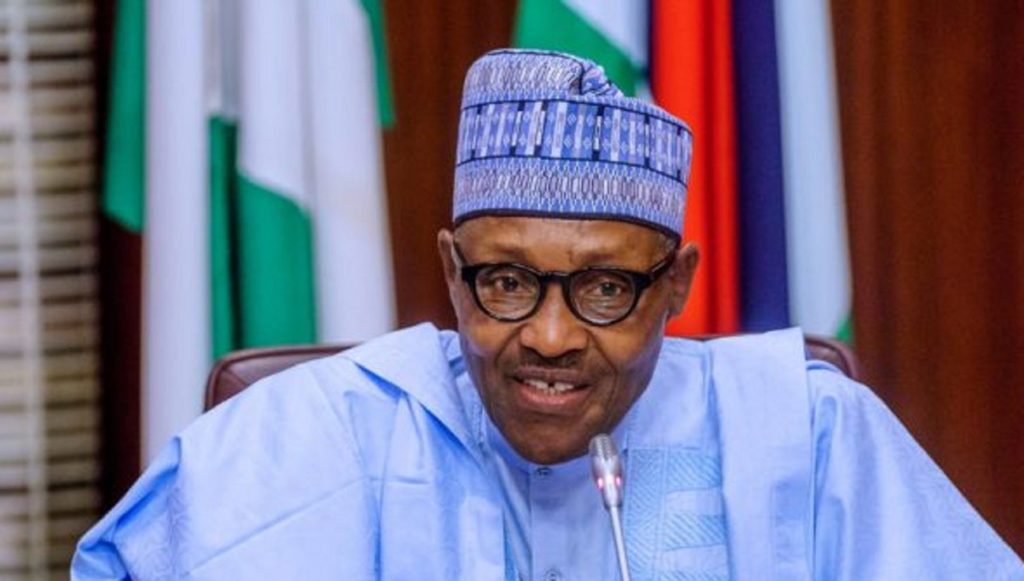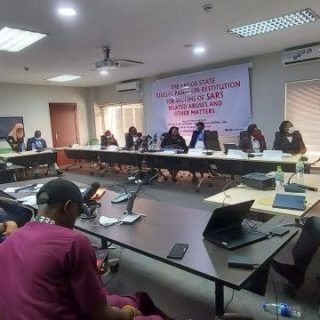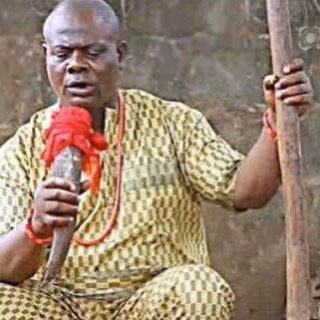Citizen is a column that explains how the government’s policies fucks citizens and how we can unfuck ourselves.

Having a bad Monday? Relax. Nigeria still owes P&ID $10 billion. How? Well, by breaching a gas supply contract. But that’s not even all. There’s a lot more to unpack in a case where interest on loan default continues to attract $1.2 million daily. Omo.
The Tea

On the 22nd of July 2009, Nigeria signed a Memorandum of Understanding (MOU) with Process and Industrial Developments Limited (P&ID). The MOU was signed on behalf of Nigeria by Dr Rilmanu Lukman, the then Minister of Petroleum Resources, and on behalf of P&ID by Micheal Quinn. The desire of the Nigerian Government was to “develop, construct and operate gas resources at optimal capacity to meet the growth in gas demand at the various level of the economy, including domestic, regional and export market”.
The government identified a number of oil/gas flare points and wished to eliminate gas flaring by setting up a Liquefied Petroleum Gas (LPG) base, as well as to make lean gas produced available for other domestic uses. P&ID’s job was to process these “wet” gas into “lean gas”.
The objective of the MOU was for P&ID to construct a Natural Gas Processing Plant and to incorporate two process streams with a total capacity of 400 Million standard cubic feet per day (MMSCuFD), together with all storage utilities and facilities at Calabar.
First, Who or What or Where Is P&ID?
Process and Industrial Development (P&ID) is a company many have said specialise in soft work. Incorporated in the British Virgin Islands (BVI), some have called Micheal Quinn, the Irish Father of the company, an “adopted son of Nigeria“. In fact, Quinn is reported to have been friends with Presidents Obasanjo and Yar’Adua.
Quinn’s story can be mythical, including how he got a contract from the European Union in 1994 to supply steel in a cleaner way in Ireland for $42.5 million but never supplied anything. But this particular ‘bromance’ with Nigeria relates to the utilisation of natural gas.
You see, in 2008, the Federal Government had grown tired of the amount of the gas that was being flared away (or wasted). The government then sought the intervention of International Oil Companies to help convert these ‘wet’ gas to ‘lean’ gas. 13 companies were granted the gas processing contract, of which P&ID was one.
Scope of The Work
The agreement between Nigeria and P&ID had 4 essential scopes:
a)
b) To ensure this fastrack is achieved P&ID will construct and incorporate two process streams with a total capacity of 400 MMSCuFD together with all utilities and storage facilities at Calabar.
c) The Government shall make available at the P&ID Calabar site boundary, 400 MMSCuFD Wet Gas (free of water and condensate), having a minimum C3 (Propane) content of 3.5% mol and C4 (Butane) content of 1.8% mol.
d) P&ID will process the Feed Gas to be supplied by NNPC and shall provide to NNPC or its nominees approximately 85% of the wet gas feedstock molecular volume in the form of pipeline quality dry gas (C1 and C2 ) at the P&ID Calabar site boundary.
Essentially, the agreement between Nigeria and P&ID was pretty straightforward if you go by the arrangement above. Nigeria makes available a certain amount of wet gas and P&ID provides approximately 85% dry gas back free.
But, na overconfidence no make February complete till tomorrow. Things would soon turn sour.
Section 20 – Arbitration
Section 20 of the Arbitration stated that:
Any dispute, difference or controversy arising from the terms of this MOU shall be settled amicably and mutually by both parties. Subject to amicable settlement, at the request of either Party, such dispute, difference or controversy may be submitted for arbitration or adjudication in accordance with the Arbitration Rules contained in the Schedule to the Arbitration and Conciliation Act Cap 19 Laws of the Federation of Nigeria (LFN) 1990.
3 years later, specifically in March 2013, P&ID activated this arbitration clause and took the case to a court of arbitration in London.
By its request for Arbitration, P&ID claimed that Nigeria did not make the supply of the wet gas as agreed in the contract, including the building of necessary pipelines, a situation in which it deemed a repudiation or breach of the contract. P&ID estimated that it had spent $40 million on the project, even though it had not yet fulfilled its own part of the contract by acquiring the land or building the facilities for the gas processing.
P&ID estimated to the court that it would have generated $5 to $6 billion from the contract if it had gone on over the 20-year stipulated period. The case went back and forth over a series of arbitration panels, but in July 2015, an ad hoc tribunal in London decided that Nigeria was liable to damages to P&ID.
In a majority decision in January 31 2017, the tribunal awarded $6.6 billion in damages to P&ID. The dissenting opinion estimated the loss at $250 million over three years.
Daddy Bubu Comes On Board – Nigeria’s Moves

At some point before the expiration of the Jonathan tenure, the administration had already agreed an $850 million out-of-court-settlement for the case. However, the Buhari tenured ignored these settlements upon assumption of office, deciding to file dismissal suits in both UK and Nigerian courts.
The case went back and forth to arbitration panels, but on June 28 2018, Abubakar Malami, the new Attorney General of the Federation started a formal investigation into P&ID and the Gas Supply Arrangement, at Buhari’s direction. Through this process, a former legal adviser of the Ministry of Petroleum Resources was charged for accepting bribes and failing to follow protocol when he was authorising the agreement. P&ID Nigeria was also convicted on an eleven-count charge of money laundering and fraudulently claiming to have acquired land.
On December 5, 2019, Nigeria’s legal team filed substantive evidence in the London High Court, stating that the agreement was procured through fraud and corruption. The court set down a time for the case to be considered, and on July 13, 2020, Nigeria formally presented arguments on why it should be permitted to bring its fraud challenge against P&ID outside the normal time limits.
On September 4, 2020, the English Commercial Court delivers an unprecedented judgement allowing Nigeria permission to proceed with its challenge to the $10 billion arbitral award made against it over three years ago.
Moral of the Story
Credit has to be given to the Malami led Ministry of Justice for seeing Nigeria up this point. The EFCC led Magu has also been credited for establishing fraud in the case.
But the work has not stopped here. Nigeria can only proceed with its challenge to the arbitral award – a sum that equals our budge for health and education. Hopefully, we will begin to start signing better contracts.





